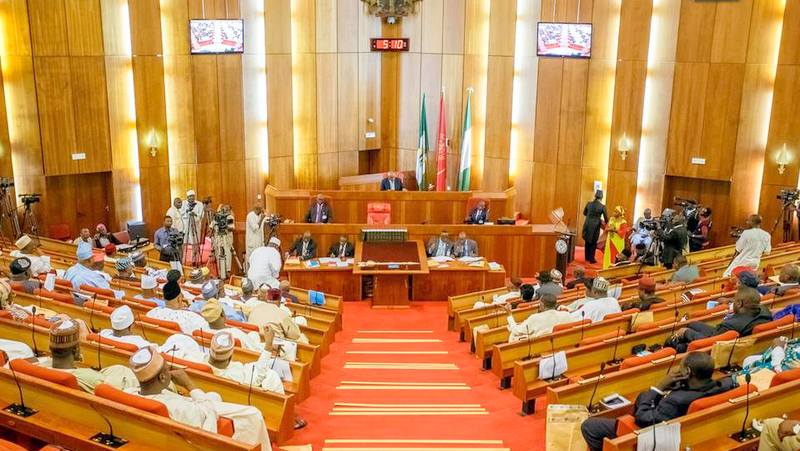


When elephants fight…
The recent decision by the Nigerian Senate to establish an investigative panel in response to allegations against Deputy Senate Leader Oyelola Yisa Ashiru highlights a critical juncture in the nation’s political landscape. The accusations levelled by the National Drug Law Enforcement Agency (NDLEA)—that Ashiru is involved in drug trafficking—are severe and require thorough examination. Yet, what is perhaps even more alarming is the context in which these allegations arose.
The NDLEA had alleged that “The personal house of the senator (Ashiru ) in GRA Ilorin, the capital of Kwara State, had been raided in recent past, where drugs and illicit substances were recovered while two of his aides: Ibrahim Mohammed and Muhammed Yahaya were arrested. And there’s more, the Agency further said, “In another encounter with the senator, the agency also received intelligence that some of his boys popularly known as ‘Omo Senator’ operating from his hometown, Offa, were equally dealing in illicit drugs. A raid was subsequently carried out on their joint in Offa where one of them, Oluwatosin Odepidan was arrested and illicit drugs such as methamphetamine and cannabis recovered from him on June 11, 2023.”
“The bid to get the agency drop the case against Odepidan including a visit to the Kwara State Command headquarters of the agency in Ilorin by the Personal Assistant to the senator, one Omoluabi, was rebuffed as Odepidan was promptly charged to court and prosecuted. Though the culprit jumped court bail in 2023, he was rearrested in 2024 after the court issued a bench warrant for his arrest. He was eventually convicted and sentenced in June 2024. So, going by this backstory, it is deductible that these encounters that the agency has had with the senator, must have been responsible for his outburst, and unfortunately, false allegation, the type that nobody within and outside of government has ever levelled against NDLEA before,” the agency noted.
On the other hand, Senator Ashiru’s personal explanation, delivered under Order 42, contends that the NDLEA’s accusations are retaliatory, stemming from his advocacy for a bill aimed at establishing a dedicated agency for drug awareness and rehabilitation. He described the agency’s claims as a malicious reaction to his proactive stance on addressing drug abuse in his constituency—a reality that he claims has led to numerous tragic outcomes. This complex interplay of allegations highlights a timeless truth: when elephants fight, the grass suffers. In this case, it is the citizens grappling with drug-related issues who bear the brunt of political power struggles. This development raises important questions about the integrity of our institutions and the potential misuse of power.
In his impassioned plea, Ashiru articulated the grave realities of drug abuse in his constituency, detailing the devastating impact on individuals and families. He underscored a troubling increase in drug-related crimes, reinforcing the necessity for serious legislative action. It is disheartening to consider that his proactive stance on drug policy reform could be met with such dire consequences. The implication that an agency meant to combat drug abuse might instead be weaponised against a senator advocating for reform is deeply concerning.
Senate President Godswill Akpabio’s call for a comprehensive investigation is a commendable step. It reflects an understanding that in matters of such seriousness, the integrity of the Senate must be upheld. The establishment of an ad hoc committee, chaired by Senator Enyinnaya Abaribe, signals the Senate’s commitment to scrutinising not just the allegations but the broader context of drug enforcement and its operations in Nigeria.
Yet, this situation serves as a stark reminder of the urgent need for reform within our agencies. The NDLEA, tasked with combating drug trafficking and abuse, must operate with transparency and accountability. Any hint of corruption or politicisation can undermine public trust and hinder effective governance. It is essential for the agency to demonstrate that it can rise above political manoeuvring and act in the best interest of the public.
As this investigation unfolds, it is crucial for all parties involved to prioritise truth and integrity over political gain. The Senate must ensure that this process is conducted with the seriousness it warrants, setting a precedent for accountability in governance. The Nigerian public deserves to see their representatives held to the highest standards of conduct, especially when their actions directly impact the lives of citizens battling the scourge of drug abuse.
Admittedly, the allegations against Senator Ashiru are a clarion call for greater scrutiny of our institutions and their operations. As the Senate embarks on this investigation, it is an opportunity to reinforce the principles of justice and integrity that are foundational to our democracy. The outcome must not only clear Ashiru’s name if the allegations are unfounded but also lead to meaningful reforms that address the systemic issues plaguing drug enforcement in Nigeria.



